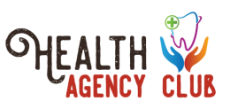Testosterone plays a critical role in maintaining your overall health and well-being. It affects everything from your energy levels to mood, muscle mass, and libido. When testosterone levels drop, it can lead to a range of unwanted symptoms that disrupt your quality of life. Fortunately, options like testosterone therapy in Lakeland can help restore balance and revitalize your health.
Understanding Low Testosterone and Its Impact
Low testosterone, or Low T, happens when the body doesn’t produce enough of this crucial hormone. This can occur naturally with age or as a result of medical conditions. Symptoms often include fatigue, weight gain, a decreased sex drive, emotional changes, and trouble focusing. Addressing these signs early is essential to prevent more severe complications, such as bone density loss or heightened risks of certain illnesses. If you’re noticing these signs, it’s worth exploring more about recognizing and understanding low testosterone symptoms.
How Testosterone Therapy Works
Testosterone replacement therapy (TRT) is designed to help individuals with low testosterone regain optimal levels. This therapy involves introducing bioidentical testosterone into the body through methods like injections, gels, or patches. The goal is to alleviate symptoms and improve your overall well-being.
By restoring hormonal balance, TRT can often lead to:
- Increased energy and improved mood
- Enhanced muscle mass and strength
- Better sexual function
- Sharper focus and memory
However, the effectiveness of therapy depends heavily on individualized care, as well as a commitment to a healthier lifestyle.
The Role of Diet and Exercise in Enhancing TRT Benefits
While testosterone therapy can yield dramatic results, combining it with healthy habits is key to maximizing its benefits. Balanced nutrition and regular exercise not only support hormone optimization but also boost overall physical and mental health.
For instance, a diet rich in lean proteins, healthy fats, and nutrient-dense vegetables can help regulate hormone production. Resistance training and aerobic activities can also stimulate testosterone levels naturally while promoting weight management. Check out this article on how diet and exercise complement TRT therapy to learn more.
Improving Your Quality of Life
Managing testosterone levels through therapy and lifestyle changes can transform the way you feel and function every day. The energy and vitality you gain can lead to better performance at work, closer relationships, and a greater appreciation for life’s activities. Ensuring you receive care tailored to your unique needs makes all the difference.
Conclusion
Taking that first step toward tackling low testosterone may seem daunting, but with the right approach, you can reclaim control and thrive with newfound confidence.
FAQs
Q: How do I know if my testosterone levels are low?
A: Symptoms of low testosterone can include decreased energy, libido, and muscle mass, as well as increased body fat. The best way to determine your levels is to speak with a healthcare provider and get a blood test.
Q: What are some lifestyle changes that can help improve my testosterone levels?
A: Regular exercise, maintaining a healthy weight, and consuming a balanced diet rich in protein and healthy fats can all contribute to optimizing your testosterone levels. Additionally, reducing stress and getting enough quality sleep can also have a positive impact.
Q: Is TRT therapy safe?
A: TRT therapy is generally considered safe when administered under the supervision of a healthcare provider. However, as with any medical treatment, there may be potential side effects and risks that should be discussed with your doctor before starting therapy. It is important to follow your provider’s instructions and regularly monitor your hormone levels.




